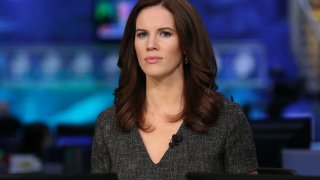
It's already getting a ton of buzz. "Did you get the notice?" People are excitedly asking one another. What's all the fuss about? The "child tax credit" payments that start going out today.
Wait a minute, all this excitement over a tax credit? Yes, because it's a euphemism for straight cash from the government, no-strings-attached (irrespective of what taxes each household is actually paying). More than 35 million families, covering approximately 90% of America's kids, will get their first check, of $423 on average, with five more payments to follow.
"It's the first time a major tax credit has been sent in advance payments, on a monthly basis," a Treasury official told CNBC. It's one of the largest anti-poverty measures since LBJ's presidency. It's supposed to help pay for "essentials like doctor's visits, school supplies, and groceries," Janet Yellen explained, calling it "a remarkable economic victory for America--and also a moral one." The Biden administration believes it will cut child poverty in half.
Cowen analysts say it's also "an underappreciated catalyst" for U.S. consumer spending in the coming months. They name Amazon, WingStop, Target, Walmart, Foot Locker, Nike, Kohl's, Apple, Dell, Expedia, Spirit Airlines, Corona parent Constellation Brands, and their entire cannabis coverage space all as beneficiaries.
Get a weekly recap of the latest San Francisco Bay Area housing news. Sign up for NBC Bay Area’s Housing Deconstructed newsletter.
Moreover, it's "a huge policy shift...universal basic income for low-middle income parents," Cowen says. The New Yorker writes that it "has the potential to change the way that the United States addresses poverty." Few think this is a one-off; Cowen expects it to be continued through at least 2025, with the extension passed through reconciliation later this year.
The only real similarity it bears to UBI, though, is the cash. Universal Basic Income was originally meant to replace existing entitlements like Social Security and Medicare with cash instead that would then be used to purchase needed services. It has morphed over time, though, because the idea of losing those entitlements has been unpopular with voters.
UBI is now mostly discussed as an anti-poverty measure aimed at low-income Americans--but even that is controversial. ("A guaranteed income for everyone would be too costly and would deprive the poor of targeted support," critics argue.) Indeed, Andrew Yang--one of UBI's earliest proponents--for instance only proposed $2,000 a year to New Yorkers in extreme poverty in his recent campaign for mayor.
Money Report
Point being: I don't think this is really about experimenting with UBI as it's typically understood. It's basically just a major experiment in how cash doled out like this will actually be used. There will be decades of research done on how much and whether and where it reduced child poverty, whether it was helpful or counterproductive or wasteful or too broadly targeted, etc.
And no one is talking about the cost. Because if the whole thing totals to maybe $150 billion over the next 12 months, that's a rounding error on the trillions already spent to deal with Covid, and interest rates keep sinking as if to challenge lawmakers: c'mon, that's all you can do?
Plus, the plunge in the U.S. fertility rate--especially post-Covid--has lawmakers of all stripes looking for a better way to incentivize population growth. Since UBI is not going to replace Social Security or Medicare anytime soon, the U.S. needs more future taxpayers to keep those programs financially viable. And as Jen Fulwiler so aptly demonstrated, the "more kids = more money" formula already seems to be sinking in with the public.
See you at 1 p.m!
Kelly






